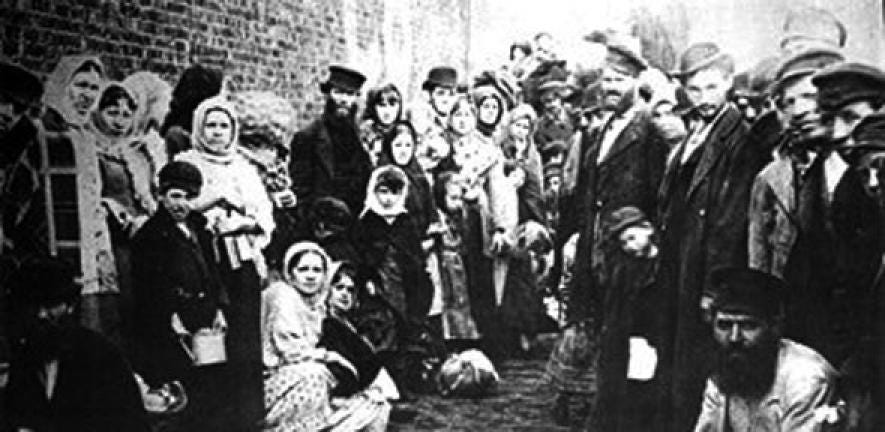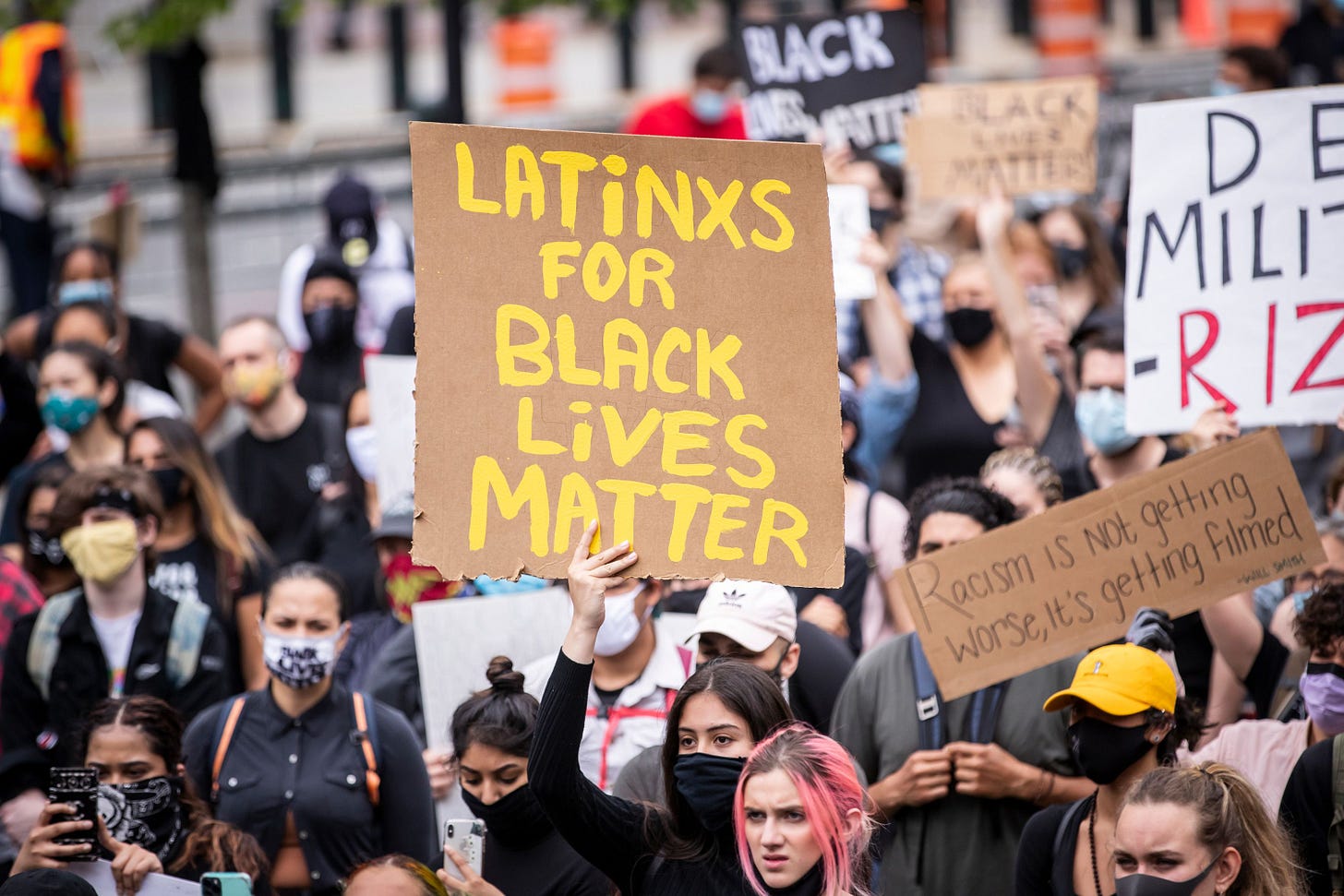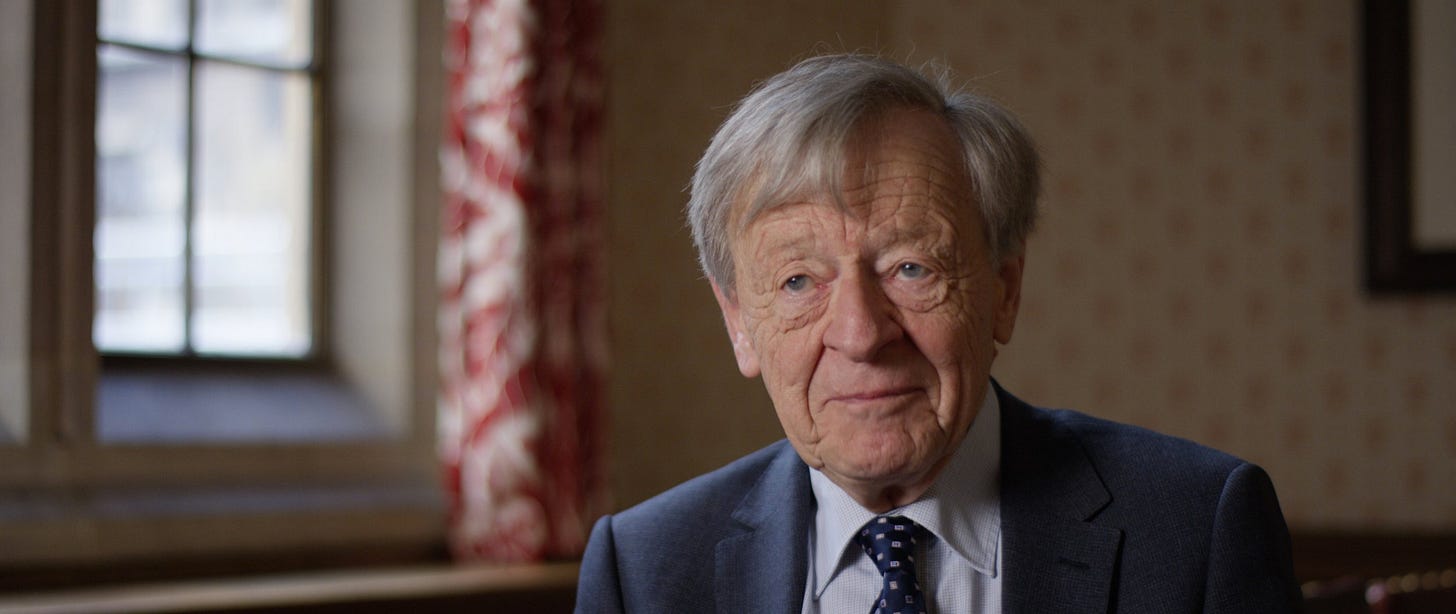The language of immigration: how we talk
How we police our borders and who we let in is a knotty political problem, but it's made more fraught by the delicacy of language which is sometimes needed
The Home Office has a reputation in British politics as the “graveyard of careers”, as I explained last year. The first instance of the attribution is unclear, but it was certainly a commonly held view in 1990, when Michael Heseltine, after dethroning Margaret Thatcher but finding the crown seized from him by the relatively unknown John Major, was offered the post of home secretary in the new government. It was its reputation as a career killer that made him refuse; he was made environment secretary instead, while the Home Office went to Kenneth Baker, who survived for 18 months then was dropped after the general election. Graveyard, eh?
One of the major factors which has contributed to this reputation is that the Home Office is more vulnerable than other departments to what Harold Macmillan identified as the greatest challenge to a statesman: events, dear boy, events. The Home Office retains some of its status as a storage cupboard of ministerial responsibilities—its portfolio contains counter-terrorism, alcohol licensing and the date of Easter—and some of these are ticking time-bombs. Immigration is just such an issue; while the Home Office sets policy and supervises UK Visas and Immigration and UK Border Force, it is a regrettable law of politics that it must also absorb the public splashback from any crises within these organisations, whether high-profile individual failures or systemic problems. Every home secretary, therefore, must have a watchful eye on immigration, though that seems an enthusiasm rather than a duty for the current incumbent.
On a global scale, immigration controls are not especially old. The Aliens Act 1793 was a response to a specific concern, the high numbers of Huguenot refugees arriving in London during the Revolutionary period, and only remained in force for 30 years. Essentially, until the 20th century, the British state had neither the capability nor much motivation to control who came to this country, why and for how long. But by the 1890s, anxiety began to grow about the number of refugees arriving from the Russian Empire. Mainly Jews from the Pale of Settlement in the west of the Empire, they congregated in London’s East End, described by an official at the Board of Trade as “immigration of the most destitute type”. No reliable figures were available as immigrants were not counted in any way, but it was obvious that the East End was becoming more overcrowded than ever, and the increase in foreign prisoners in British jails was impossible to ignore.
The government’s response was the Aliens Act 1905, which formally established the home secretary as the minister responsible for immigration and nationality. (I doubt the date of its Royal Assent is celebrated in the Home Office.) Its motivation was brutally simple and financial: it declared “undesirable” those immigrants who “appeared unable to support themselves” or were “likely to become a charge upon the rates”. In theory, it exempted those fleeing religious or political persecution, but they had to prove their case, and that was not always easy. To an extent, it had in common with the 1793 act that it was general legislation in fact aimed at a specific target, Jewish immigration, but it had started a hare running which is still at full gallop today.
It should be obvious, but is worth spelling out because the debate is stalked by conflation and misnomers, that “immigration” covers a range of distinct issues: visas for foreign nationals who want to visit the UK, or come to study or work; applications for citizenship or permanent leave to remain; claims of asylum; and, by implication, the administrative and enforcement arrangements in place to support and apply those issues. The distinction between asylum-seekers and economic migrants is particularly controversial, as are the appeals processes and the management of unsuccessful applicants. Indeed, by definition it can be impossible to distinguish before applications have been considered.
There were a lot of adjustments to be made in the immediate aftermath of the Second World War. The UK had been home to a variety of émigrés whose countries had been invaded and conquered by Germany, and inevitably some, especially those whose homelands had exchanged Nazi tyranny for that of the Communist bloc, did not wish to leave. There was a particularly large population of Poles, and the Attlee government legislated to allow 200,000 of them to stay under the provisions of the Polish Resettlement Act 1947. But another key change, though some failed to recognise it at the time, was the British Nationality Act 1948. This created a consolidated status of “citizen of the United Kingdom and Colonies”, thereby according to citizens of every colony and dominion the same rights in terms of residency and passage as those enjoyed by residents of the UK. It also extended citizenship rights to women in their own standing, rather than according to the status of their husbands.
There was bipartisan support for the idea of a universal definition of citizenship throughout the Empire and Commonwealth. In part it was hoped that this would spike the guns of decolonisation; but it was also legislation pursued without a notion that the future might see large-scale migration, let alone of non-white populations. In effect, for 15 years after the commencement of the act, people from any of the UK’s colonies could come to the United Kingdom without any let or hindrance and was entitled to reside here as a full citizen in just the same way as those born in the UK. It was also a turning point because, after 1948, the issue of immigration became predominantly and irreversibly one, not of nationality, despite the title of the statute, but of race. Pre-war immigration had been largely a matter of Jewish immigration, but after the British Nationality Act was passed it would become overwhelmingly a matter of non-white immigrants.
We are all aware of how language changes, adapts and is adapted, and this happens with perhaps greater speed and certainly greater precision when it comes to race. Terms which were used neutrally and without thinking 50 years ago, by those of my parents’ and grandparents’ generations, are now not only obsolete but often offensive or utterly unsayable. Inevitably common usage sometimes lags behind the official prescription but we tend to reach the same destination; or at least that was true until 10 or 15 years ago, and it can now be very difficult for laypeople who don’t juggle linguistics for a living to keep up.
Consider the fate of that unloved neologism “Latinx”. It was first sighted around 2004 as a gender-neutral adjective for those in the US with Latin American roots, to supersede the gendered terms Latino and Latina. It is an awkward word, difficult to enunciate, and the editors of the Merriam-Webster dictionary wrote rather sniffily that “more than likely, there was little consideration for how it was supposed to be pronounced when it was created”. But these are sometimes the cost of tolerance and inclusivity: it is much easier to use a default gender (such as “chairman” or “infantryman”), but making language more accommodating sometimes leads to greater complexity.
Latinx made the definitive jump to academic respectability in 2013 in a Puerto Rican journal article challenging the gendering of the Spanish language, and you might think that that would represent final acceptance, the affirmation of a new term which society will gradually adopt. Merriam-Webster added the term in 2018 and the Oxford English Dictionary followed suit in 2019. And yet an opinion poll that same year found it was used by only two per cent of US residents of Latin American descent, and by no respondents aged over 50. It was simply not gaining traction outside the circles of gender activists and fashionable academics and commentators. A survey in 2020 found that many Latin American students who used the term Latinx at university did not do so in wider circles, whether at home or elsewhere. One academic unwittingly summed up its fatal flaw as an overthought and alienating concept to address a problem which few perceived, calling it “a recognition of the exclusionary nature of our institutions, of the deficiencies in existent linguistic structures, and of language as an agent of social change”.
Beyond the peak is always the downhill slope, whether sudden or gradual. In 2018, the Royal Spanish Academy rejected the term, its director, Darío Villanueva, remarking “The problem is we’re confusing grammar with machismo”. By 2021, one survey found that Latinx was now not simply rusting in irrelevance, but had become offensive, even described as a racial slur. Some feminists argued that it had erased the struggle of the 1970s to achieve recognition of “Latina”. The League of United Latin American Citizens, the oldest and largest Hispanic civil rights organisation, declared in 2021 that it would no longer use the term and described it as “very unliked” by its members. I dwell on “Latinx” not because it has ever been widely used in the UK, but because it demonstrates the difficult path that academics and activists, and then, sometimes, the general public must navigate. Words can be inspired by the best of intentions and yet still backfire: “Latinx” did not even need 20 years to go from a brand new coinage to actively offensive. It is, or should be, a cautionary tale.
When we talk about immigration, though, it is not simply a matter of picking a careful way through a minefield of neologisms and refinements of existing terminology. The problems can arise just as easily from otherwise-everyday words which, in a certain context, take on a sinister or unhelpful appearance and speak a kind of shorthand based on usage and history. It is the domain of the notorious “dog whistle”, coded or superficially neutral language the hidden meaning of which is significant only to a certain community or political cohort.
For example, when far-right anti-globalists talk about the influence of “international banks” or “international finance”, it is often a subliminal anti-Semitic message which those at whom it is aimed quickly decode: banks seek to overpower national governments, are run by elites who are essentially rootless, and you know who have traditionally been particularly prominent in banking and finance? Jews. Think about it: Rothschild, Warburg, Hambro, Salomon, Lehman, Erlanger, Seligman, Raphael. It doesn’t take a genius.
There is a wider danger, however, that we innocently use words which come with baggage. “Ethnic minority” might seem a harmless catch-all for minority groups distinguished principally by race, but even that is problematic. Given that we now accept that race is a social construct with no intelligible scientific meaning, “race” and “ethnicity” are no longer coterminous; this means that “ethnic minorities” might include Poles, Travellers or Roma. Some have also preferred the phrase “minority ethnic” (clumsy and grammatically nonsensical) to emphasise that everyone has an “ethnicity”, even if it is “White British”. So the pitfalls awaiting the unwary even in apparently neutral and inoffensive terms.
(The Law Society, the professional body for solicitors in England and Wales, has a useful “Guide to race and ethnicity terminology and language”; some of it may be preposterous but, because it’s designed for lawyers, it’s precise and comprehensive.)
All of these dangers, sensitivities and subtleties were brought to a head earlier this month when an elderly peer took the home secretary to task for her rhetoric. Lord Dubs, a Labour member of the House of Lords who was born in Prague and came to Britain as one of the 669 children, mainly Jewish, who were evacuated on the so-called Kindertransport in 1939. He therefore has a particular concern for immigration policy, the way immigration is framed and how immigrants are treated in the UK. Dubs was particularly offended by Braverman’s description of an “invasion” of the south coast of England. He told the Lord Speaker’s Corner podcast:
I have to say, when the home secretary talks about refugees as invaders, I find that deeply and personally upsetting. Upsetting because invaders are seen as an enemy. Invaders are hostile people. Whereas what we’re talking about are people who are fleeing from war, persecution, threats to their safety and so on. And I think we owe them a bit of compassion.
This is not the only instance of the home secretary’s choice of words being criticised. In January, Braverman was seen in a video being challenged by a Holocaust survivor, Joan Salter, at a meeting in her constituency, but she was not abashed, stressing that she “won’t apologise” for talking about a migrant “invasion”. Some observers might have thought that doubling down when criticised by a Holocaust survivor was a politically and presentationally risky strategy, but one must admit that Braverman shows no fear in her personal deportment.
In November last year, in the aftermath of a firebomb attack on an immigration processing centre in Dover, the home secretary was sharply partisan and hostile in her remarks to the House of Commons.
The British people deserve to know which party is serious about stopping the invasion on our southern coast and which party is not. Some 40,000 people have arrived on the south coast this year alone. Many of them facilitated by criminal gangs, some of them actual members of criminal gangs. So, let's stop pretending that they are all refugees in distress.
One letter to The Guardian cautioned against ignoring this kind of language and quoted German scholar and diarist Victor Klemperer on the Third Reich: “Words can be like tiny doses of arsenic, being swallowed unnoticed they seem to have no effect, only to show their toxic consequences after some time.”
This is just one high-profile instance of seemingly ordinary words assuming a significance beyond their common usage. David Cameron was pulled up in 2015 on a visit to Calais when he talked about “a swarm of people coming across the Mediterranean, seeking a better life, wanting to come to Britain”, the objection being that “swarm” was both dehumanising and implied a sense of ill intent or menace. The same year, Philip Hammond, then foreign secretary, spoke of the need for the UK to protect itself against “marauding” migrants and said the government’s “number one priority” would be to send would-be immigrants back to their countries of origin.
Of course, some of this is thin gruel by yesterday’s standards. Sometimes politicians felt no need to conceal prejudice, never mind choose their words with sensitivity: in October 1964, Peter Griffiths, the Conservative candidate for Smethwick, in the West Midlands, defeated Harold Wilson’s first pick for the Foreign Office, Patrick Gordon Walker, by running an explicitly racist campaign which was alleged to have included the slogan “If you want a nigger for a neighbour, vote Labour”. Even by the standards of the time this was explosive, though one should note that in 1964 the local Labour club in Smethwick had a colour bar. But in a way Smethwick has put us where we are today: the shock of openly racist electioneering, and its success, alerted the mainstream of politics to the importance of language and its effect. Griffiths was excoriated in the Commons by Wilson, who said that he should serve his term as “a parliamentary leper”; in any event the term was short. Wilson called another election in March 1966, and Griffiths was defeated by his Labour challenger, Andrew Faulds.
(There is, however, an argument that the controversy derailed Gordon Walker’s career. Wilson appointed him foreign secretary despite his unseating, and gave a peerage to the long-serving Reginald Sorensen, MP for the safe Labour seat of Leyton. Gordon Walker seamlessly became the Labour candidate in the by-election in January 1965 but was unexpectedly defeated by a margin of 205 votes by the Conservative Ronald Buxton. He had to resign as foreign secretary, and although he dislodged Buxton and returned to the House of Commons at the 1966 election, his career momentum was gone. There was a two-year stint in the cabinet, first as minister without portfolio then as education and science secretary, but he had been in Attlee’s cabinet in 1950 at a similar level and had been destined for one of the great offices of state. He left the Commons in 1974, aged 66, was granted a peerage and spent a brief period in the (nominated) European Parliament in 1976-77.)
Nor is is simply an issue of language alone. In 2016, during the Brexit referendum campaign, the inevitable Nigel Farage, who cherishes his freedom to say unpleasant and unsavoury things on a regular basis, manoeuvred himself into a controversy over a poster (above) by UKIP, of which he was then the leader. It did not escape general attention that many of the “migrants” pictured were dark-skinned, and the combination of the image with the words “Breaking Point” were regarded by many as inflammatory, if not outright racist. Dave Prentis, general secretary of the UK’s biggest trade union, Unison, reported Farage to the Metropolitan Police.
To pretend that migration to the UK is only about people who are not white is to peddle the racism that has no place in a modern, caring society. That’s why Unison has complained about this blatant attempt to incite racial hatred and breach UK race laws.
Prentis also described the poster as “scaremongering in its most extreme and vile form”. But some points of fact should be made. The photograph was a genuine, undoctored image, of migrants crossing the border between Slovenia and Croatia in 2015 (by then both EU member states). In addition, while Prentis was swift to approach the Metropolitan Police amid much publicity, it is much more difficult to find a record of the outcome of the report: no action was taken against Farage or UKIP. It is also relevant that, however shameful the intent behind the UKIP poster may have been, Farage cannot have known that on the day of its unveiling, 16 June 2016, the Labour MP for Batley and Spen, Jo Cox, would be fatally shot and stabbed in the street in her constituency by a far-right terrorist. After that, everything was different.
The point here is that of course politicians, as public representatives, have a duty to be cautious in the language they use, or else face the consequences. For all that Enoch Powell claimed till his death that he wished he had left the quotation from the Aeneid in his infamous 1968 Birmingham speech in the original Latin rather than translating it for his audience—“et Thybrim multo spumantem sanguine cerno” rather than “I seem to see the River Tiber foaming with much blood”—he knew perfectly well before he gave the speech that it was couched in terms which would seize the public imagination, and had said as much beforehand to his friend Clem Jones, editor of The Wolverhampton Express and Star. And we are a sufficiently sophisticated society now that it is not good enough to say “Oh well that’s not what I meant”. To a degree, politicians must be alive to the potential unintended impact of what they say, especially when it comes to remarks prepared in advance.
But the story does not, cannot, end there. We accept that the responsibility outlined above exists, that it is more onerous now than once it was, and that some politicians, wittingly and unwittingly, fail to observe it. However, the sensitivity of immigration and race must not mean that politicians simply abandon any conversation, either abiding by fashionable platitudes or observing a kind of omertà when it comes to the policies they enact or seek to enact.
Think of this as a spectrum: at one end is the coarse appeal to racists and crypto-racists that all immigration consists of people simply seeking to enrich themselves in the UK, either legitimately or, in the more pervasive narrative, at the expense of the taxpayer. In this Weltanschauung, all immigrants are to be viewed with suspicion and our border and immigration policy must be firm and ruthless. The UK cannot be seen as a soft touch. We all know how the narrative works.
Yet if this is one end of the spectrum, the other is that everyone seeking to reside in the UK has a legitimate claim to do so, is genuinely seeking refuge and must be treated with nothing but generosity. There is no ill intend among migrants. Plainly that perspective must also be false.
If both of these hypotheses are true, then it is inevitable that we will have to create an approach to immigration and border control which is a compromise, which seeks to distinguish genuine asylum seekers, and bring them into our embrace and sanctuary; identify economic migrants and assess them against clear, perhaps stern criteria and make a judgement as to whether we wish them to remain in order to contribute to the economic growth of the UK; and ensure that those whom we do not wish to have in the country, because they are criminals or have criminal intent, because their presence would be, in the Home Office’s phrase, “non-conducive to the public good”, are not permitted to pass through the system and disappear into the black economy. We must also be able to remove those who fail whatever tests we apply and return them somewhere (I am not advocating, oh, Rwanda, to take a central African country at random).
This means that analysis of the public discourse must have two parts. Yes, it is more than acceptable to say certain words or phrases are “unacceptable” or “inflammatory”. But there must be something more. If we do not wish to say there is an “invasion” of migrants on the south coast of England—and it is an unnecessarily hostile and unpleasant word which admits of no nuance—then how are we differently to address the fact that nearly 46,000 people crossed the English Channel in small boats in 2022, that the process is a dangerous one and in many regards in the control of criminal gangs, that some of those who make the crossing are not asylum-seekers or refugees, and that all of this is a matter of concern to a significant section of the population, not only in the south of England but across the UK?
Clearly, in practical and political terms, no government can simply roll over and allow all who cross the Channel to stay. They cannot all be accepted prima facie under the circumstances of their claims, without any investigation or oversight. We certainly cannot tell voters that their concerns are illegitimate and they should cease to be worried about it. And if we do not do that, we cannot avoid creating some kind system to manage the fates of those who do not pass whatever tests we put in place to judge claims to asylum or residence. We must also accept two complementary truths: that some people will object to immigration for reasons which are racist, discriminatory, illogical and to be deprecated; but equally that it is legitimate to want to control numbers and enforce the rules for reasons other than prejudice.
All of this will force us to have a public discourse which will make many, on all sides of the argument, uncomfortable. The only way we can do this is by taking care with the tone and precision of our language, but without declaring the conversation itself unacceptable. So we must, of course, be clear what we mean by “asylum-seeker”, “economic migrant” and “refugee”, that words like “invasion” and “swarm” are at best unhelpful, but that references to “criminal gangs” or Albanians or “people traffickers” are not invented.
We must also be unmistakably clear about the purpose of our policy. The Home Office’s aim must surely be to create a system which is as generous as we can afford and as fair and consistent as we can make it, and that we police migration outwith the system strictly but fairly. That system must then be capable of processing as many applicants as it can as quickly as it can, as delays in decision-making benefit neither the applicant nor the administration, but only those who exploit the system’s failings.
Regrettably, the current debate over immigration has become toxic. To a large extent politicians on both sides are to blame: Conservatives know that there are easy votes to be had from the right wing of the base by sounding implacably tough on migration (in all forms), while those on the left know that they can evade any responsibility or need for a coherent alternative by hiding behind accusations of racism and prejudice. A plague on both their houses, because we can do better. We are a better people than this.
It is certainly not for me, as a white, middle-class, (oh, very well, then) middle-aged man to say our society is free of bias or that the non-white population faces no discrimination or obstacle. But even in my lifetime, or that of it which I can recall, we have come a long way. Racism is certainly less overt than it was in the early 1980s, and overall I would venture it has become less potent: we have a prime minister from a family of Indian descent by way of Kenya and Tanganyika, and I think I can assert with a degree of confidence that race was not an issue, an admitted one, at least, in the Conservative leadership struggles of last summer and autumn. In formal legal terms, after the passage of the Equality Act 2010, we have robust protections against discrimination for a wide range of groups likely to be subject to it.
There are few professions now in which homosexuality which would be a major bar to progress: gay ministers and shadow ministers are of minimal note, the Scottish Conservative Party, Plaid Cymru and the Scottish Greens have all had gay leaders, and gay people have headed, to choose a few, BP, the civil justice system (master of the rolls), the West Midlands Combined Authority, the British Museum, Siemens UK, Barclays Bank UK and Bupa. One of our most beloved national treasures is Stephen Fry, rubbing shoulders in that elite category with Sir Derek Jacobi, Sir Ian McKellen, Alan Bennett and Clare Balding. (It remains a dark stain on association football that Jake Daniels of Blackpool is the only openly gay professional footballer in the UK and that homophobia is the largest category of abuse in the game.)
My point here is not to say that the United Kingdom is an egalitarian paradise where bigotry is unknown. But we have come a great distance, and we are not uniquely black of soul. A 2019 survey found that the UK had the lowest prejudice against immigrants in Europe and that our society was in some ways relatively unified, while a 2020 study traced a decline in opposition to immigration, showed that Britons attached more importance to the skills of immigrants than their racial or ethnic origins and, again, that we compared favourably to many of our European neighbours in these attitudes. Last year, IPSOS Mori presented data which suggested that concerns over immigration had—very much counterintuitively—fallen markedly since Brexit, which many have attempted to pigeonhole as simply “about immigration”. These polls and surveys are not conclusive, but they also do not support a narrative without redemption.
Let us return to where we began, with language. As the freewheelingly brilliant Professor Donald Trefusis chides a colleague in Stephen Fry’s breath-taking and outrageously clever debut novel The Liar:
The English language is an arsenal of weapons. If you are going to brandish them without checking to see whether or not they are loaded, you must expect to have them explode in your face from time to time.
That is, I think, a good attitude to take. Our politicians enjoy a particular power when it comes to communicating with the public, and that privilege brings the responsibility to be self-aware and informed. And if politicians are careful with their language, as they are currently not, then they must also respect their opponents’ right to be heard, and to express complicated and nuanced argument. If they can do this, if they can follow the guidance of the better angels of their nature, the rewards are huge: better, fairer, more humane policy, and the opportunity to promote its merits to an electorate which has some liberal and generous instincts within it. I am as much of a cynic as the next man, if the next man is Archilochus, but I am capable of idealism, of optimism, of a dogged certainty that we can all be better than we are. How delicious it would be if our tribunes of the people proved me right.









